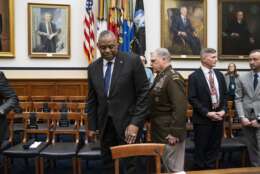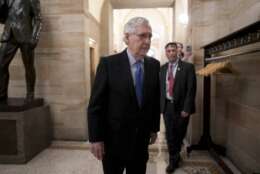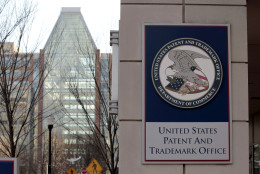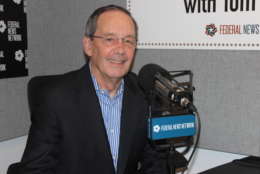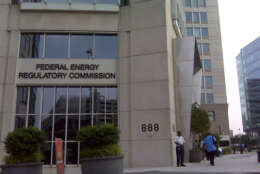Tom Temin
-
A lot more accidents and near misses occur on the nation's railroads than you might realize. The Federal Railroad Administration tracks incidents using what's known as the Confidential Close Call Reporting System or C3RS. But the Government Accountability Office found that only a handful of railroads participate, so there's a big gap in safety data.
December 07, 2022 -
In today's Federal Newscast: House and Senate Armed Services Committee leaders have reached an agreement on the National Defense Authorization Act. U.S. scientists turn into diplomats (of sorts) on foreign soil. And the Social Security Administration unveils its new website.
December 07, 2022 -
In a workforce of about two million, the federal government has only about 8,000 members in the senior executive service. A small number, but crucial, they are the main buffers and translators between the political appointees and the rank-and-file who actually do the work of government. Now the Senior Executives Association has a new board chairman.
December 06, 2022 -
The Office of Federal Procurement Policy has been banging this particular drum for years now. Not only are agencies allowed to engage in discussions with industry before they craft procurements, doing so is usually a good thing. Now that principle is enshrined in the Federal Acquisition Regulation via a new rule issued just last week.
December 06, 2022 -
A federal appeals court ruled last week that feds who work without pay during government shutdowns are not entitled to monetary damages. The Court of Appeals for the Federal Circuit found the government is not actually in violation of the Fair Labor Standards Act in government shutdown situations. That’s because another law, the Antideficiency Act, effectively makes it illegal to pay employees when their agencies don’t have appropriations.
December 06, 2022 -
In today's Federal Newscast: Republicans in the House call on the EEOC to fully bring back federal employees to the office. A new study finds that reaching out to certain TSP participants, boosts the money they invest. And GSA's Technology Transformation Service has a new leader.
December 06, 2022 -
For nearly a quarter century, the government has been coaxing industry to report cyber security incidents. Now it's the law, and the Cybersecurity and Infrastructure Security Agency has the task of writing the rules and making it happen. For one industry view of how it's going, the Federal Drive with Tom Temin spoke with the Information Technology Industry Council's Senior Director of Policy, Courtney Lang.
December 05, 2022 -
If they can avert a rail strike, can they get a federal budget? To get the answer to that big question, Federal Drive host Tom Temin spoke with WTOP Capitol Hill Correspondent Mitchell Miller.
December 05, 2022 -
About one in four federal employees are veterans, spouses of veterans, or reservists. The Interagency Veterans Advisory Council, with 125 agencies participating, tracks veteran federal employee issues. Its most recent annual report had a couple of recommendations.
December 05, 2022 -
Two former U.S. Patent and Trademark Office directors — one from the Obama administration and one from the Trump administration — recently formed a coalition. Its aim is to protect U.S. intellectual property, particularly from theft by China.
December 02, 2022 -
Congress has been on a spending spree for three years: appropriations, the American Rescue Plan, the CHIPS Act, the infrastructure bill, the inflation bill. It all means federal agencies have to hire somewhere between 80,000 and 100,000 people.
December 02, 2022 -
In today's Federal Newscast: The Federal Energy Regulatory Commission gets high marks for its cybersecurity program. Watchdogs say mistakes and fraud led to telehealth overbilling during the pandemic. And DoD wants to know if the kids are doing all right.
December 02, 2022 -
Giving Tuesday is just one day out of 365 when people have the opportunity to make donations.
December 01, 2022 -
The Agriculture Department recently lost a contract award protest. It was attempting to purchase commercial style services for evictions and foreclosures for homes behind in their loan payments. It all hinged on what the department meant by "commercial services."
December 01, 2022 -
One of the top goals of the climate crowd is development of a new jet fuel. Now a group of federal department and agencies has launched a public challenge to develop such a fuel and the infrastructure to support it. It's called the Sustainable Aviation Fuel Grand Challenge.
December 01, 2022


